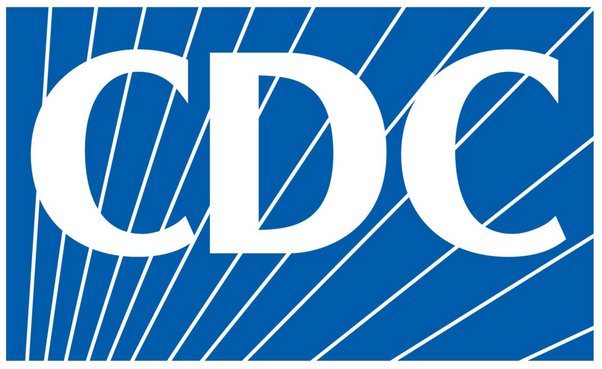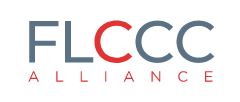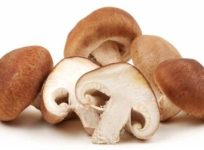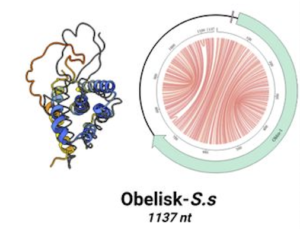
The Centers for Disease Control has finally acknowledged that “certain vitamins & minerals may have effects on how the immune system works to fight off infections and inflammation.”
The statement, issued in a tweet in July, and added to the CDC’s Food and Coronavirus Disease guidelines, is the first time the federal agency has publicly recognized that supplements such as vitamin C, vitamin D, and zinc, might have a role in quelling the inflammation associated with COVID, and strengthening the immune system’s ability to fight off infections.
Not surprisingly, the pronouncement comes with caveats. CDC stresses that “Dietary supplements aren’t meant to treat or prevent COVID-19,” and that “the best way to obtain these nutrients is through foods.” It also cautions that “in some cases, dietary supplements may have unwanted effects, especially if taken in too large amounts before surgery, or with other dietary supplements or medicines.”
It is a cautious acknowledgment, but that’s not entirely surprising.
Reluctant Acknowledgment

In general, the CDC and other federal agencies, have been reluctant to endorse or advocate for use of supplements in the clinical context. The very concept runs counter to the Dietary Supplements Health and Education Act of 1994, which permits supplement companies to make “structure/function” claims for their products, but explicitly prohibits disease prevention or treatment claims.
The Federal Trade Commission has made it clear, through a salvo of warning letters and regulatory actions against supplement makers and physician advocates, that it will not tolerate supplement companies or practitioners making COVID-related claims for supplements or other natural therapies in their promotional communications.
But in the absence of reliably effective conventional drug therapies, there is growing public and practitioner demand for information about strategies to build immune system resilience.
In particular, vitamin C has gained traction as a potentially valuable tool for both acute COVID care and for less-acute immune support and health maintenance.
Vitamin C deficiency correlates strongly with increased susceptibility to severe respiratory infections (Carr AC, Maggini S. Nutrients 2017). And a Cochrane metanalysis of three small studies suggests that oral vitamin C supplementation can reduce risk of pneumonia. The effect seems most pronounced in the elderly and those who are deficient at baseline (Hemila H, et al. Cochrane Database Syst Rev 2013). It also reduces duration and severity of upper respiratory tract infections (Hemila H, Chalker E. Cochrane Database Syst Rev. 2013).
IV Ascorbate
In a recent paper on optimal nutrition for a well-functioning immune system, Calder and colleagues recommend daily ascorbate doses of at least 200 mg/day for healthy people, and between 1-2 g/day for those who are sick. These levels are considerably higher than the US RDAs, which are 75 mg/day for women and 90 mg/day for men, but still within the tolerable upper limit of 2 grams.
The only COVID-specific studies of vitamin C have been with intravenous ascorbic acid. Data from COVID wards in Shanghai early in the pandemic showed that IV injections of 100-200 mg/kg per day improved oxygenation, reduced mortality, and shortened hospitalizations in COVID patients under ICU care. Vitamin C also quelled the characteristic cytokine storms seen in severe COVID cases. Expert guidelines from Shanghai recommend IV ascorbate along with heparin and broad-spectrum protease inhibitors.
The CITRIS-ALI (Vitamin C Infusion for Treatment in Sepsis Induced Acute Lung Injury) study randomized 167 Acute Respiratory Distress Syndrome (ARDS) patients to IV vitamin C 50mg/kg every 6 hours for 96 hours) or placebo infusion. While vitamin C did not improve organ failure scores, c-reactive protein levels, or any of the other primary endpoints, it did reduce 28-day mortality (30% vs 44%), increased ICU-free days (11 vs 8), and markedly increased the number of hospital-free days (23 vs 16).
Do the MATH
A number of physicians’ groups are pushing for wider use of IV ascorbate, as well as specific oral supplements in US hospitals and clinics. The Front Line COVID-19 Critical Care Working Group, a consortium of doctors from critical care centers all over the nation is promoting a protocol it calls MATH+ (Methylprednisolone, Ascorbic Acid, Heparin, and Thiamine).

The group recommends IV ascorbate, 3 grams per 100 ml every 6 hours, for 7 days, to counteract the inflammatory damage, and the severe hypercoagulable states typical of COVID. They contend that if implemented early, MATH could save thousands of lives, reduce the need for intensive care and mechanical ventilation.
Preliminary data from hospitals that have embraced MATH+ show COVID mortality rates in the range of 4% and 10%, as compared with a worldwide average hospital mortality of 23% in centers that adhere strictly to conventional guidelines.
In an August 1st update, Paul Marik, MD Chief of Pulmonary and Critical Care Medicine at Eastern Virginia Medical School, Norfolk, VA, outlined the following inexpensive, safe, and easily accessible treatment “cocktail” that he and others believe “may have a role in the prevention/mitigation of COVID-19 disease.”
- Vitamin C 500 mg, twice daily
- Quercetin 250-500 mg twice daily
- Zinc 50-75 mg/day (elemental zinc), lozenges are preferred. After 1 month, reduce the dose to 30-50 mg/day.
- Melatonin (slow release): Begin with 0.3mg and increase as tolerated to 2 mg at night
- Vitamin D3 2000-4000 u/day
- Optional: Famotidine 20-40 mg/day
Marek and colleagues have developed several variants of this basic protocol, depending on specific patient characteristics and level of disease severity.

“The information provided in this protocol is primarily to educate physicians on a protocol that we found to be highly effective in damping down the hyper-inflammatory cytokine “storm” that is the cause of mortality and morbidity in COVID-19,” he notes.
The American Association of Naturopathic Physicians has also been vocal in advocating for wider use of IV vitamin C, a familiar modality in naturopathic medicine long before COVID. AANP called on federal and state policymakers to promote it as an adjunctive therapy for patients hospitalized with COVID, and—in states where naturopaths are licensed or license-eligible–to include them among the practitioners permitted to administer it.
Paul Anderson, ND, member of the AANP’s COVID-19 Clinical Task Force said, “I have used IVC safely and effectively in both clinical and hospital practice for over twenty years. After reviewing the dosing, guidelines, and experiences of the hospitals in China, the evidence shows that the use of IVC in hospitalized COVID-19 patients has a high probability of reducing hospital stay duration and improving outcomes.”
Though some naturopaths include IV ascorbate, and other IV vitamins, as routine parts of their patient care, AANP stressed that in the context of the pandemic, these office-based infusions must only be done when truly necessary, and only by practitioners who are able to screen and isolate patients.
NDs should not be offering IV Vitamin C if not fully equipped with PPE and with clear clinic policies in place to protect themselves, their patients, and their communities, the organization insisted.
END







